
Dogs don’t complain the way people do. When they’re hurting, they often go quiet. You’ll notice it in small changes—how they sleep, move, or look at you. They still want to be near you, but something in their energy shifts. It’s easy to miss at first. But if you pay attention, their silence starts to sound like something trying to be heard.
They Sleep More Than Usual

When dogs aren’t feeling well, they slow down. They nap longer, stay on the same bed all day, and don’t react as quickly when you call them. It’s not just tiredness—it’s withdrawal. Sleep becomes the safest place to be when the body or mind feels off. If your once-active dog seems lost in long naps, that change usually means something’s bothering them.
They Avoid Eye Contact

You can tell a lot from the way your dog looks at you. When they stop meeting your eyes, it’s rarely random. They might glance away the moment you look at them or stare off at nothing while you talk. It’s their quiet way of shutting out what feels too much. Not because they don’t trust you, but because something inside feels uneasy.
They Stop Greeting You at the Door

Most dogs light up at the sound of your keys or footsteps. When that excitement fades, it’s worth paying attention. Maybe they still watch you walk in, but don’t move from the couch. That loss of spark can be one of the earliest signs they’re not feeling right. They want to greet you—they don’t have the energy to do it.
Their Appetite Quietly Changes

Every dog has their pattern when it comes to meals. When that pattern breaks, something’s off. Maybe they leave food in the bowl or walk away after a few bites. It’s not always pain—it can be stress, sadness, or simple exhaustion. Food usually brings joy, so when it doesn’t anymore, it’s their way of telling you they’re not okay.
They Lick the Same Spot Over and Over

Repetitive licking can look harmless, but it often means they’re trying to soothe pain or anxiety. You’ll notice a patch of fur thinning or hear the soft sound of licking when the room is quiet. It’s how they self-comfort when they can’t settle. Sometimes it’s physical irritation, other times it’s stress. Either way, it’s their way of saying something’s not right.
They Hide More Often

When dogs retreat to dark corners or under the bed, it’s usually not mischief. It’s them looking for a place that feels safe. They hide when they’re hurt, scared, or overwhelmed. You’ll find them there even after the noise has stopped. It’s not about wanting space—it’s about needing calm. That distance is how they manage whatever’s troubling them.
Their Tail Stays Low, Even Around You
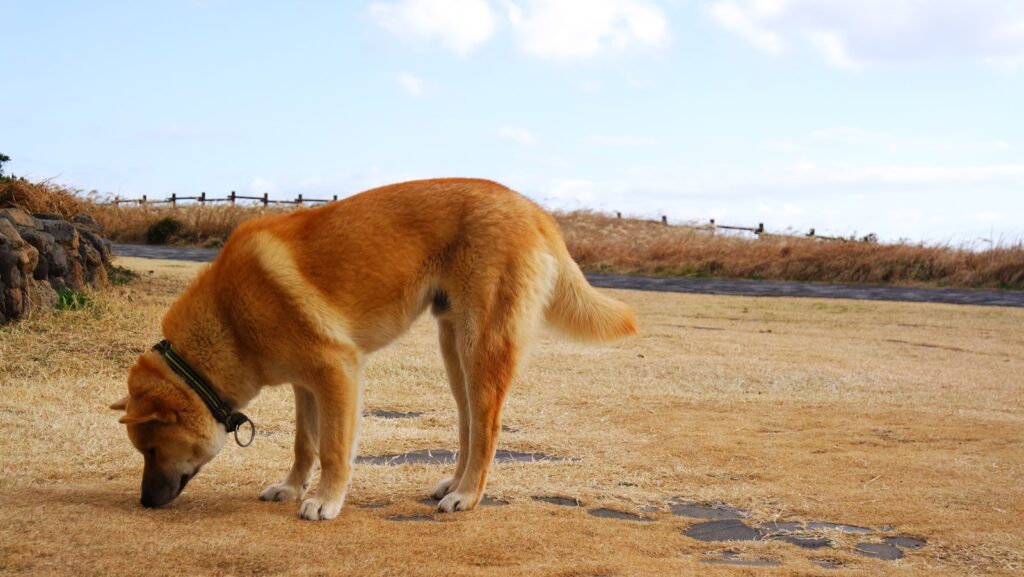
A dog’s tail tells you almost everything. When it droops or barely moves, even when you’re near, it often means they’re uneasy. They might still wag, but it’s half-hearted. It’s not that they don’t love you anymore—it’s that they don’t have the same lightness they once did. Their body shows what they can’t explain.
They Flinch When You Touch Them
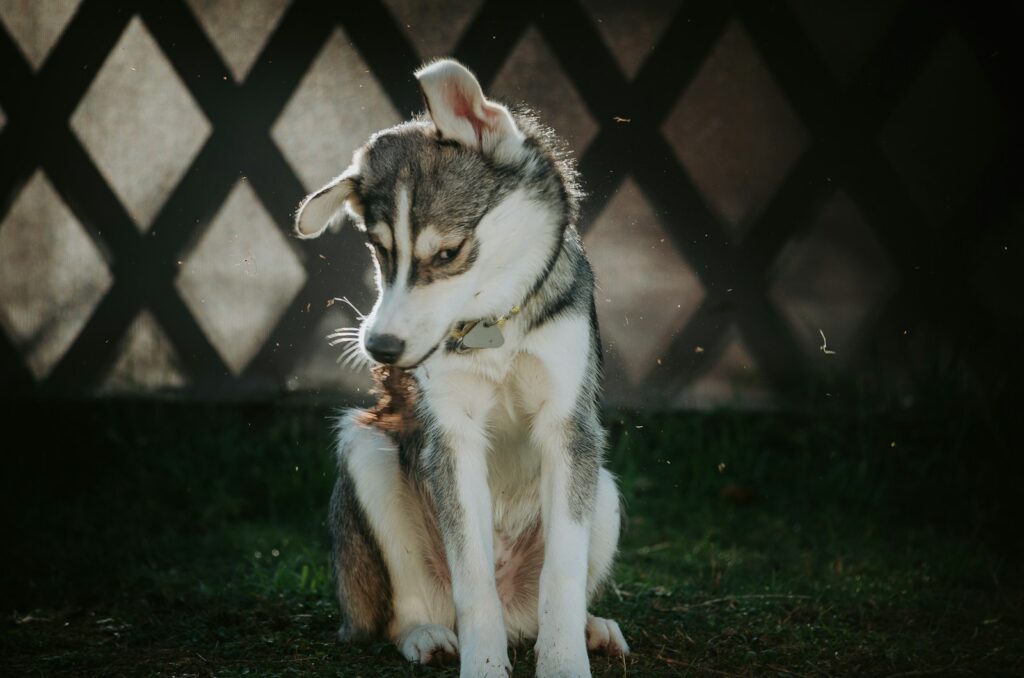
If your dog startles when you reach for them, it might not be fear—it could be pain. Maybe a sore spot or joint aches when you brush by. They react before they think, pulling back to protect themselves. That quick twitch or glance at your hand is their body’s way of saying something hurts, even if they can’t tell you where.
They Lose Interest in Play
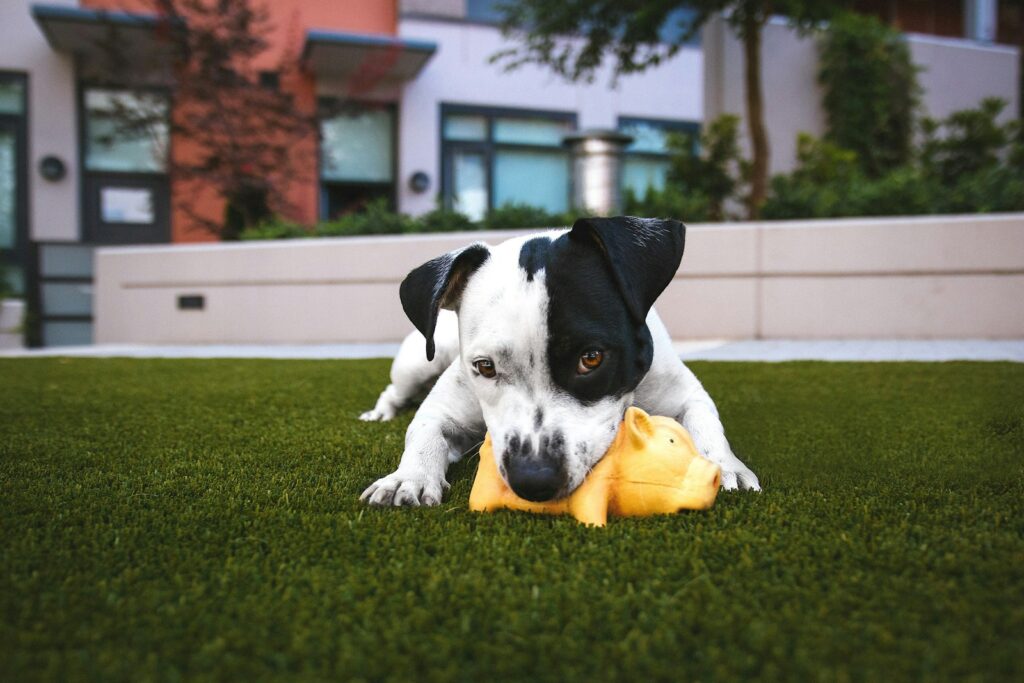
When a dog stops chasing the ball or ignores a favorite toy, something has changed. Play is joy for them—it’s how they express life. Losing that spark doesn’t happen overnight. The toy sits untouched, and the excitement that used to burst out disappears. It’s not boredom. It’s fatigue — both physical and emotional — showing up in small, quiet ways.
Their Breathing Sounds Different
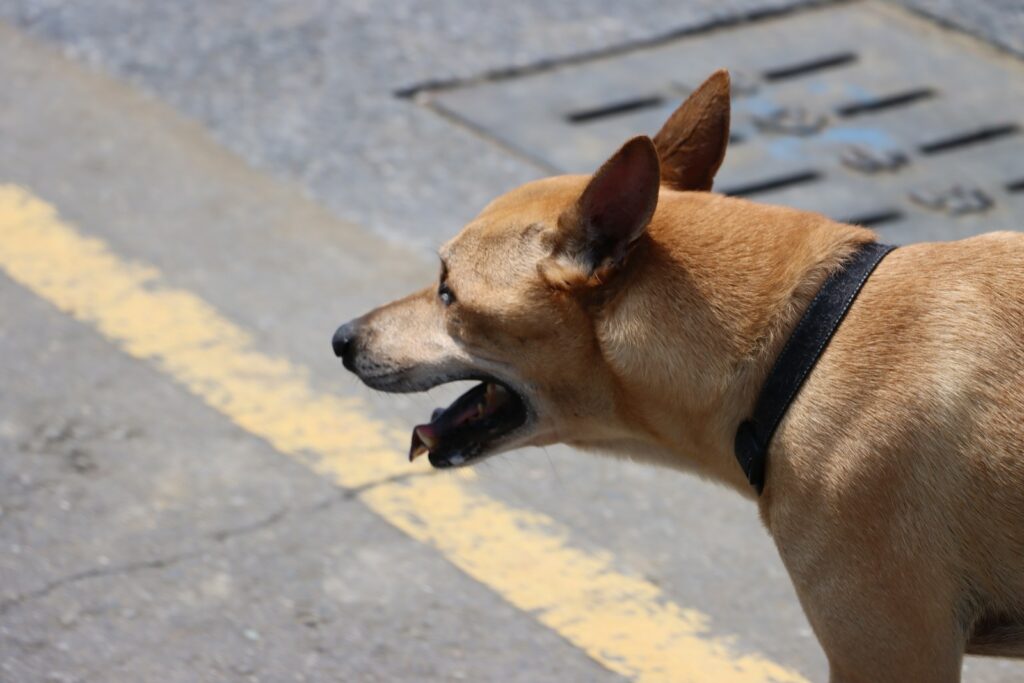
You can sometimes hear it before you see it—the slow, uneven sound of their breathing. Maybe it happens after mild activity, or even when they’re resting. Dogs often hide pain well, but breathing gives them away. When it’s heavier than normal or strained for no clear reason, it’s usually a signal that their body’s working harder than it should.
They Follow You Less Often
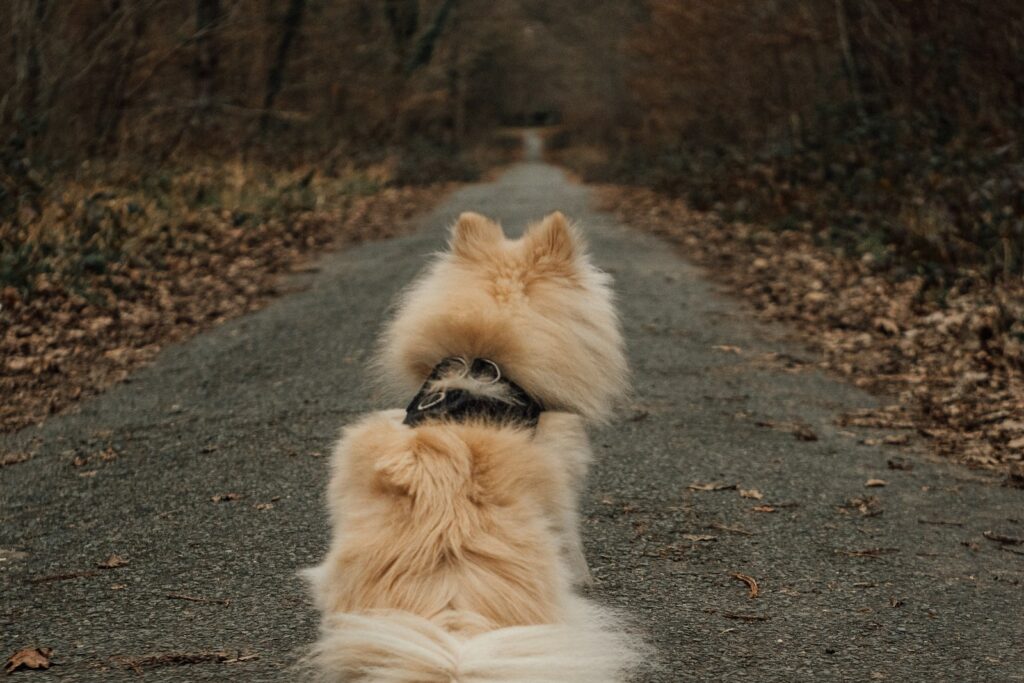
If your dog used to trail behind you everywhere and suddenly doesn’t, that space means something. They still love you, but the energy to keep up isn’t there. You walk into the next room, expecting to hear their paws, but the floor stays quiet. It’s not detachment—it’s exhaustion. They’re still watching you, just from a distance this time.
They Seem Startled by Small Noises
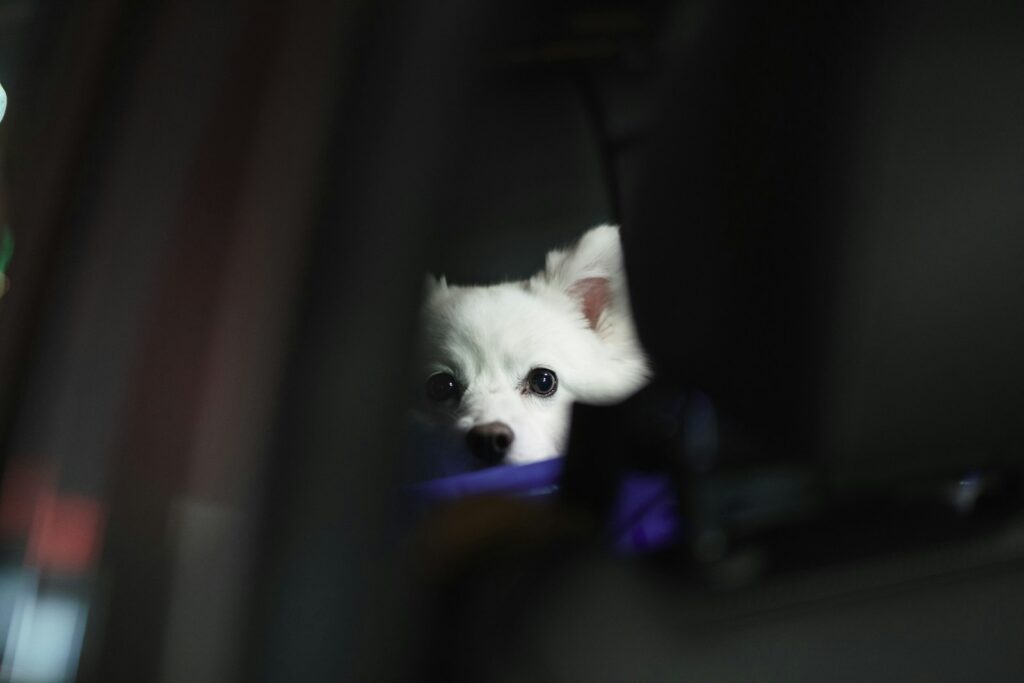
When your dog jumps at harmless sounds like the TV or a closing drawer, they’re probably tense or anxious. Things that never bothered them now make them uneasy. You might notice their ears perk up or their body stiffen for no reason. It’s not that they’re scared of you—it’s that their nerves are always half-ready for something bad to happen.
They Stop Wanting to Go Outside
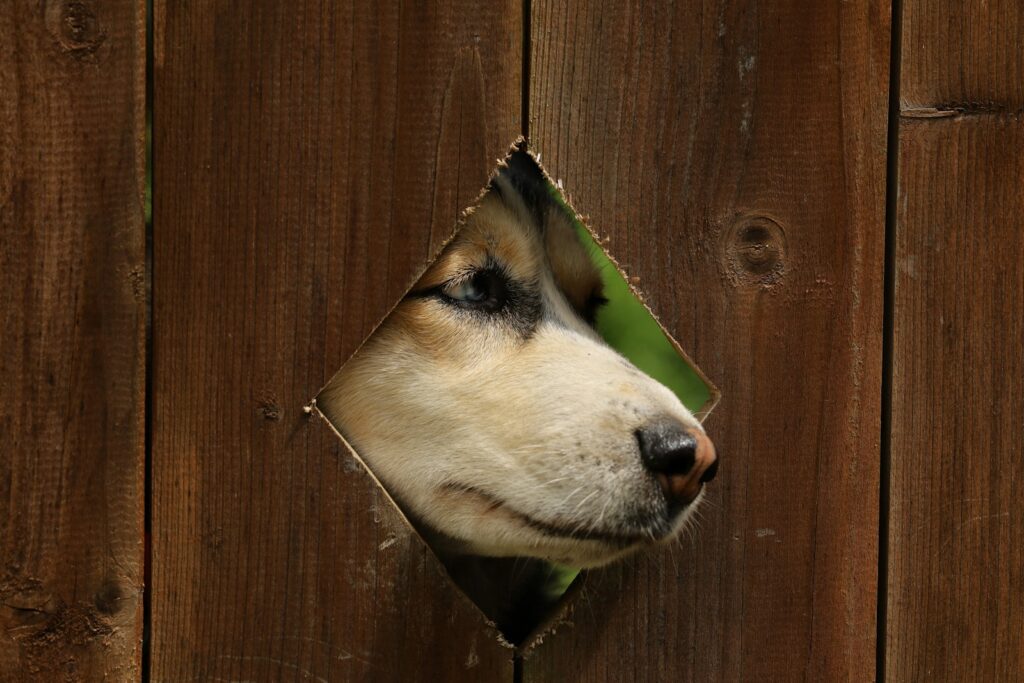
If your dog hesitates when you grab the leash, that’s not just stubbornness. It could be pain, stiffness, or anxiety. The world that used to excite them now feels overwhelming. They linger near the door, eyes unsure, body still. It’s one of the hardest changes to see because you know how much they used to love those walks.
They Rest Their Head More Than Usual

Sometimes it’s in the small gestures. Your dog rests their head on the floor instead of keeping it lifted. They stay still for longer stretches, eyes half-open, breathing softly. It’s not laziness—it’s fatigue that runs deeper than sleepiness. It’s their body slowing down to manage what it can’t explain out loud.
They Don’t Ask for Affection Like Before
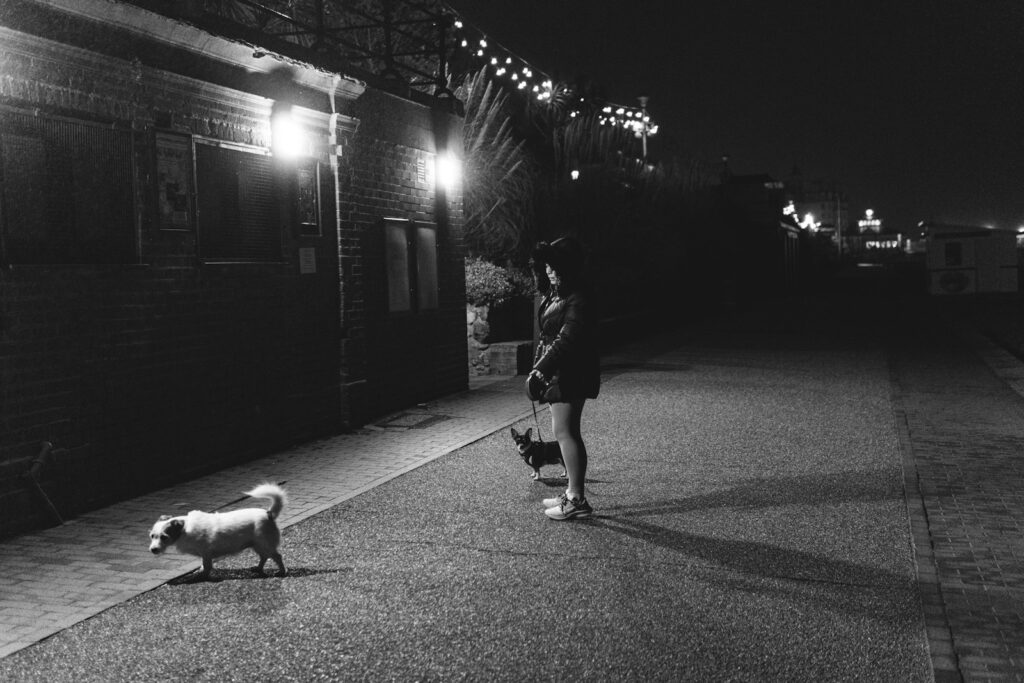
It’s strange when a dog that always leaned into you suddenly keeps to themselves. They still stay near, but the spark to reach out is gone. No paw on your arm, no head resting in your lap. They aren’t rejecting love—they just don’t have the same comfort in it right now. That small space between you says more than words could.

